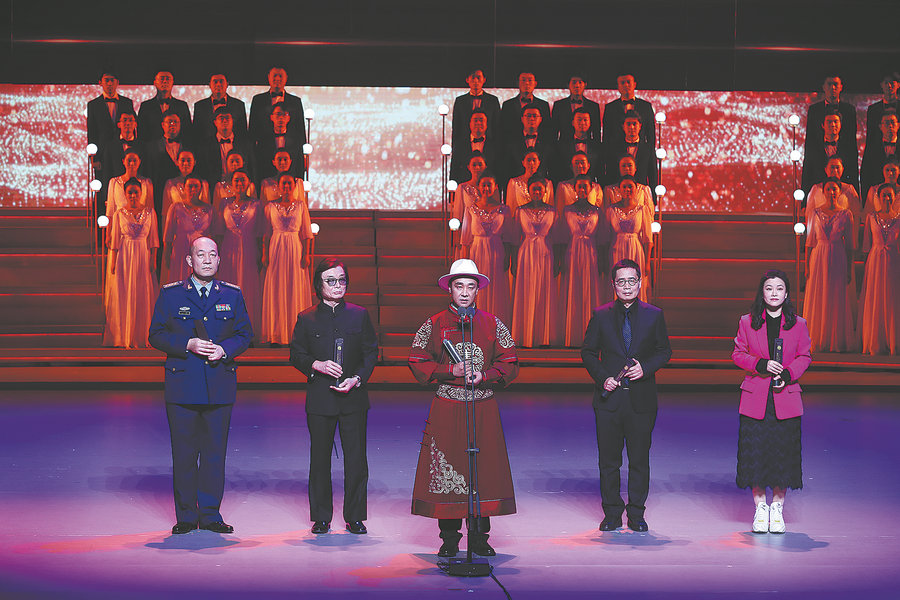Writers who craft scenes of wonder


Established in 1997, the Lu Xun Literature Prize is given every four years. In its eighth edition, altogether 35 authors were awarded for works in seven categories: reportage, literary theory and criticism, short story, essay, novella, poem and translation.
Although the list of winners was announced in August, it was the first time the China Writers Association, the organizer of the prize, held an awards gala that was broadcast on satellite television and livestreamed online to promote the winning works.
During the event, the lives of the laureates, their literary experiences and reflections on writing were recounted.
Jiang Wei, a winner for the reportage award, talked about his travels to rural regions around the country since 2019, learning about the poverty alleviation effort. He was 72 years old when he started his journey.
"Setting out is a writer's most beautiful posture," he says.
The winner of the literary theory and criticism award Zhang Li says a good critic has gentleness, emotion, individuality and his or her own journey of discovery, and is a bosom friend to literature, literary works and the writers.
However, a critic should also be frank when discussing the shortcomings of a work, and be dedicated to building empathy and a precious aesthetic trust together with writers, readers and our times, she adds.
Dong Xiaqingqing's works shed light on the life and thoughts of border soldiers at Northwest China's Xinjiang Uygur autonomous region.
"Every stroke of a short story helps us see clearly the natural landscape, heroic people and the great times, and illuminates parts of the history and details of life that we've been longing to record," she says.
Dong joined the military at 18 and was transferred to Xinjiang at 22. She recalls how she went on patrol with border soldiers in a blizzard. It was around — 20 C. Heavy winds seemed to assault them, and they could barely open their eyes.
However, when they managed to find a sheltered place to eat, the squad leader prepared her a bowl of instant noodles, while the other soldiers stuck to cold and dry food and frequently shifted position to shield her from the wind.
That moment she made up her mind to write down their stories.
In a congratulatory video, her border soldier buddies say that many plots in her novels reflect what is happening around them.
"Only someone who has lived with us could write something like that," one of them says.
























